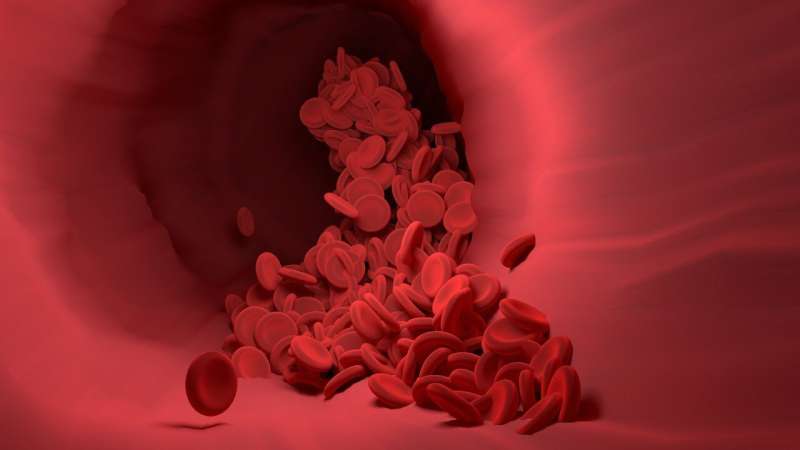Advanced tumor disease: Inflammatory response in blood a driving factor

A research group at Leipzig University Hospital, led by Professor Ulrich Hacker, together with scientists from Masaryk University in Brno, Czech Republic, has investigated what influences the life expectancy of patients with advanced gastric cancer. The evaluation included data from over 500 individuals who had been treated within a clinical trial several years ago.
Their analysis used certain values in the blood that indicate an inflammatory response in the body, as well as measurements of muscle quality. "From our findings, it can be concluded that in aggressive, advanced tumor diseases, as exemplified by gastric carcinoma, the inflammatory response in the blood is the driving factor for disease progression. This is closely related to the development of sarcopenia, a loss of muscle mass and quality," explains Professor Hacker, senior physician at Leipzig University Hospital. The physicians also found that in patients who underwent chemotherapy as part of the trial and in whom the disease had not progressed further, the inflammation level measured in the blood decreased significantly.
When it comes to prognosis, scientific discussions have so far attached great importance to muscle parameters. This has given rise to the hypothesis that measures to improve tumor patients' muscles could in turn improve their life expectancy. At least for advanced tumor diseases, as in the present study, it now appears that the inflammatory response is a leading factor.
"We demonstrate that blood inflammation levels and sarcopenia are closely related. Contrary to our findings in a previous study, we now know that muscle quality is not a decisive factor for the life expectancy of patients with advanced gastric cancer," Professor Hacker explains, summarizing the key message of the research. He adds that "influencing the inflammatory response is emerging as a key target to improve both prognosis and sarcopenia."
To treat sarcopenia, experts often suggest physical training and, above all, dietary changes. "However, it is also known that dietary changes do not work well when elevated inflammatory markers are detected in the blood. This new study data suggests that effective tumor therapy reduces inflammatory responses, which could lay a good foundation for effective nutritional interventions," says Professor Hacker. Future studies would have to clarify whether the findings could be transferred to other tumor types and how different tumor therapies or other treatments affect inflammatory responses in the blood.
The research was published in Annals of Oncology.
More information: U.T. Hacker et al, Modified Glasgow prognostic score (mGPS) is correlated with sarcopenia and dominates the prognostic role of baseline body composition parameters in advanced gastric and esophagogastric junction cancer patients undergoing first-line treatment from the phase III EXPAND trial, Annals of Oncology (2022). DOI: 10.1016/j.annonc.2022.03.274



















